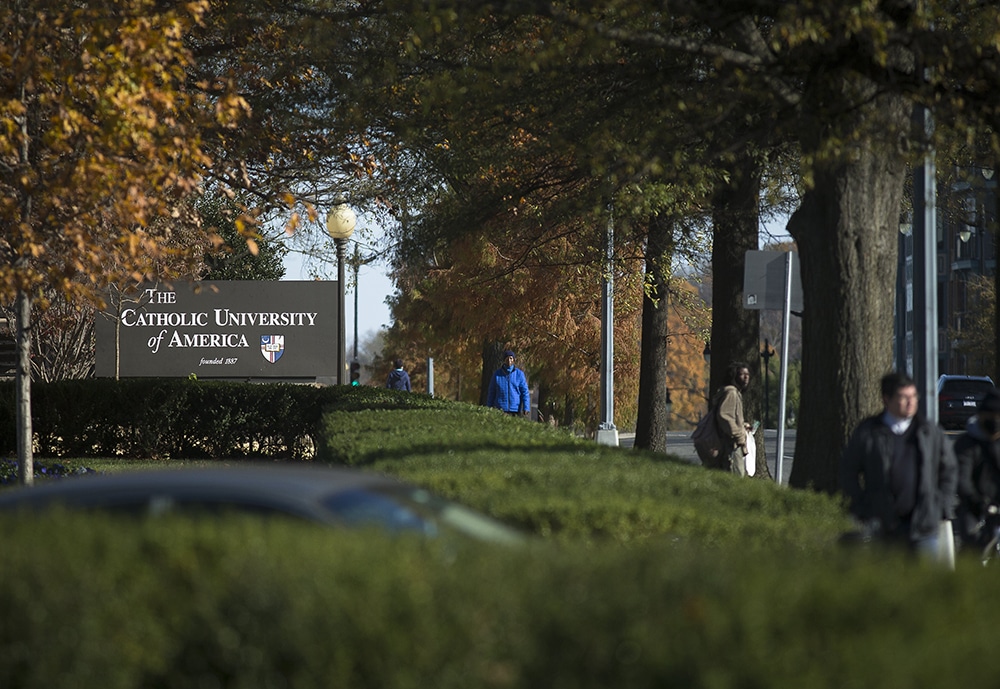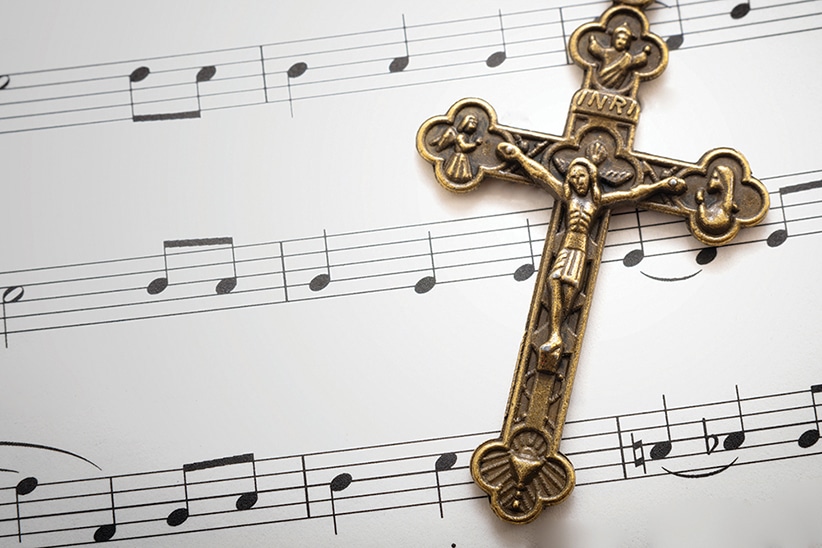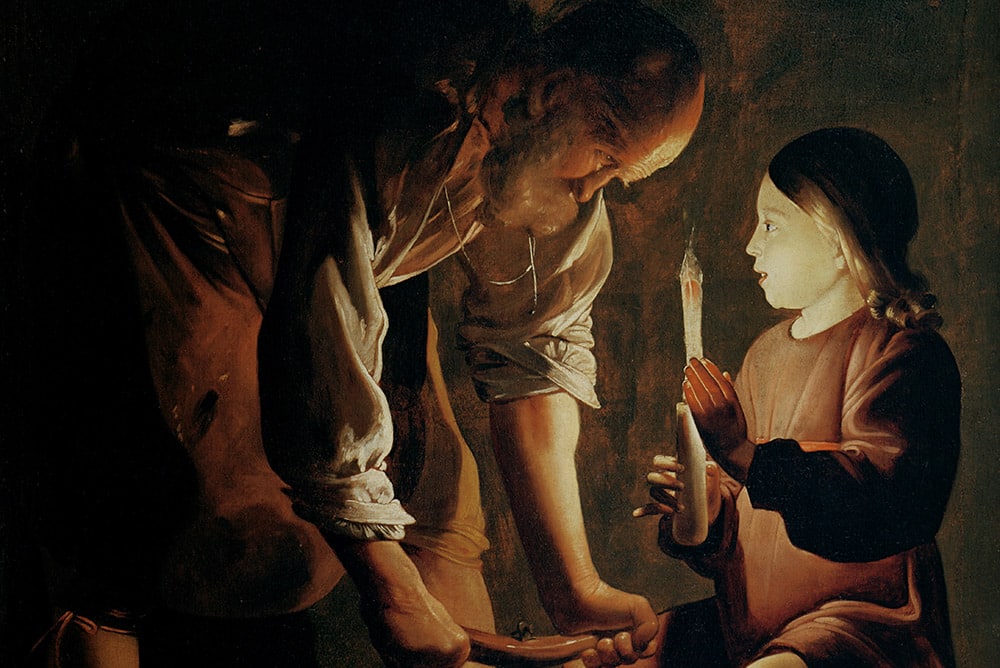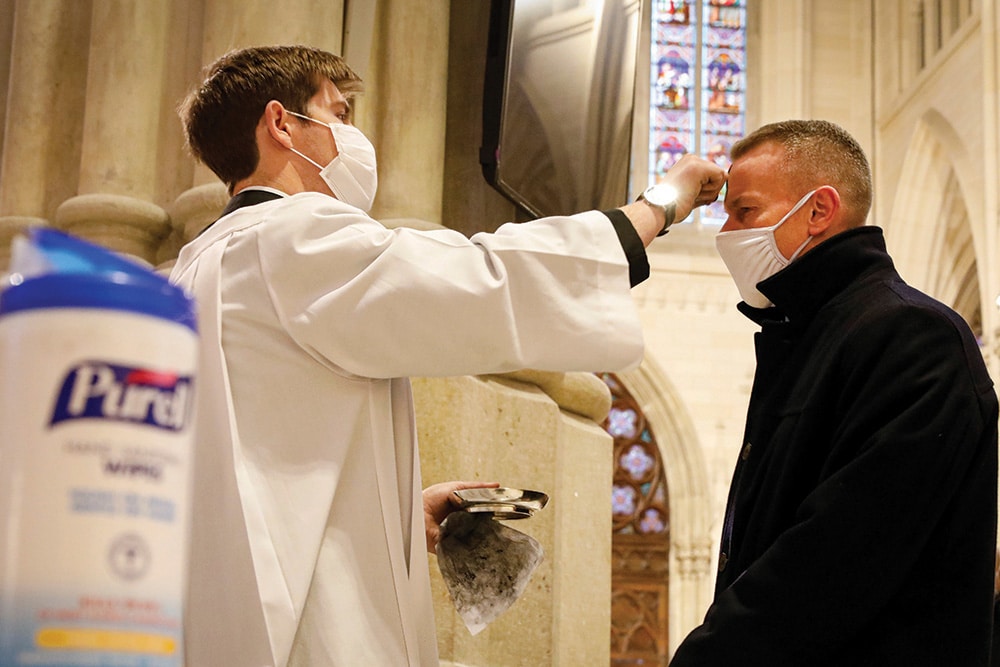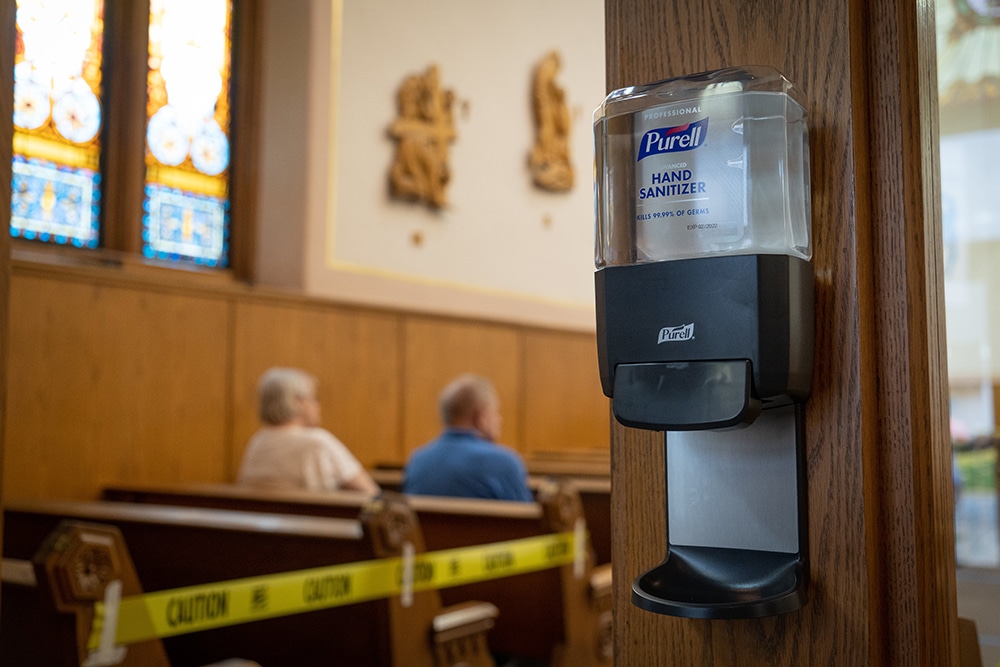Jessica Patterson loved being a teacher and thought she would always be in the classroom. But administrators saw she had the talent to one day be a Catholic school principal.
“I had great leadership who maybe saw something in me before I saw it in myself,” said Patterson, the vice principal at St. Madeleine Sophie School in Bellevue, Washington.
Patterson is also a graduate student in the Mary Ann Remick Leadership Program at the University of Notre Dame’s Alliance for Catholic Education, where Patterson told Our Sunday Visitor she is learning unparalleled lessons in Catholic school leadership.
“They’re teaching us to be transformational leaders, and they’re also modeling the behaviors that they’re teaching us,” Patterson said. “We’re watching this being modeled to us at every level of the program delivery.”
Across the country, Catholic colleges and universities are educating the next generation of Catholic school principals, vice principals and other administrators who will lead Catholic education into the mid 21st century. They will do so amid changing demographics that are causing dioceses in some parts of the country to close and consolidate Catholic schools.
Read more Catholic College special section articles here.
“Catholic school leaders are challenged by a variety of internal and external factors,” said Susan Poyo, education professor and director of undergraduate education at Franciscan University in Steubenville, Ohio.
Practically speaking, Poyo said Catholic school administrators must be flexible and knowledgeable of all aspects of the school community, able to make decisions not only about curriculum and instruction, but also about food service and transportation.
“Catholic school administrators must invest in the future of the school in terms of development,” Poyo told Our Sunday Visitor. “These leaders engage in community relationship building and invest time communicating immediate as well as future needs of their students, faculty and staff.”
Forming a school culture
The multifaceted demands of the job require that Catholic school administrators not only have solid management and human resource skills but that they also have basic competencies in budgeting, curriculum, pedagogy and communication, not to mention a firm grasp on the driving philosophy that animates Catholic education at its very core.
“We ask them to adopt the posture of being the lead learner in their schools, that they are the first learner among the learners,” said Michael Zelenka, a faculty member of the Mary Ann Remick Leadership Program at the University of Notre Dame’s Alliance for Catholic Education.
Zelenka, a former school principal who himself graduated from “Remick,” told Our Sunday Visitor that to form transformational Catholic school leaders, the program focuses on three main areas: stewarding resources, leading-learning and building robust Catholic school communities.
“That leaders are able to understand the executive management of Catholic schools is important,” Zelenka said. “Everything from enrollment to human resources management to school law, all of those things are incorporated into the idea of stewarding resources. It’s not just about taking care of what’s been entrusted to us, but also about being innovative and entrepreneurial in their approach.”
To build “robust Catholic school communities,” Zelenka said a school’s culture is something that can and should be shaped by Catholic school leaders.
“We talk about organizational theory, getting leaders to understand what is culture, and how it’s lived out in an organization,” Zelenka said. “Identifying the set of beliefs in the culture, how they are to be lived out, identifying components of a strong Catholic school culture, such as the Paschal Mystery or the Incarnation, and how they inform policies and practices.
“All of that, it all bleeds together,” Zelenka said.
Personal faith development
Gerald Cattaro, the executive director of the Center for Catholic School Leadership and Faith-Based Education at Fordham University, told Our Sunday Visitor that the focus of the Catholic school leadership degree program revolves around the mission and identity of Catholic schools.
“A Catholic school has its unique culture, its own unique DNA,” Cattaro said, adding that the program examines school leadership through a Christian anthropological lens, emphasizing the importance of developing a faith-based community and “a spirit of Catholicism” in the school that permeates the entire curriculum.
“We’d say we have a formation program, not a training program,” said Cattaro, who added that the majority of future Catholic school leaders he sees in the degree programs are “faith-filled people” who see their profession in Catholic education as a vocation to proclaim the Gospel.
“These people really have to buy into the mission and identity of Catholic schools, and that’s why discernment for them is so very critical,” Catttaro said.
Melodie Wyttenbach, executive director of the Barbara and Patrick Roche Center for Catholic Education at Boston College, and Martin Scanlan, a professor at Boston College’s Lynch School of Education and Human Development, told Our Sunday Visitor that a critical piece of forming Catholic school leaders is helping them to deepen their own faith-filled perspective.
“They must first come to know Christ themselves,” said Wyttenbach, adding that Boston College’s programming is “very intentional” regarding the spiritual component of Catholic education.
“We have various retreats that help them to take the time to center themselves in their relationship with Christ,” Wyttenbach said. “They have the opportunity to do spiritual direction with our program.
Scanlan said Boston College’s program also speaks about the vision for the future of Catholic schools, and how Catholic education in the years ahead can remain accessible and better serve students and families on the margins.
“I think the vision of the future calls for innovative, creative Catholic school leaders at all levels, from the administrators in the building to the diocesan leaders, to the board members and teacher-leaders, and families, all working together to make Catholic schools do what they are called to do more effectively, specifically to be more effective at that Gospel call to serve the marginalized,” Scanlan said.
The battle for Catholic education
Poyo, of Franciscan University, added that tomorrow’s Catholic school administrators “need to be prepared for the battles that continue to be waged on the faithful,” particularly in the arena of education.
“Arming ourselves with truth continues to be of utmost importance as Catholic school administrators bear witness of their faith through leadership and example,” said Poyo, adding that effective Catholic school administrators “need first and foremost a living and breathing relationship with God.”
Said Poyo: “Formation and evangelization must be a product of an encounter with Christ and the relationship built through those encounters. Without the foundation of that relationship, knowledge of the Faith may result in an attitude of compartmentalization where being a Catholic becomes a social identity rather than a disposition that permeates every aspect of the administrator’s life.”
Patterson, the vice principal at St. Madeleine Sophie School in Bellevue, Washington, said that while she and other students in Notre Dame’s Remick leadership program are studying the “nitty gritty” elements of educational leadership, such as fiscal responsibility and human resource management, they are also reading Church documents on Catholic education and reflecting on what makes a distinctly Catholic school culture.
“It’s a chosen vocation,” Patterson said. “We do this because it’s so important to us, not only as educators, but in our faith. The faculty at Remick understands that a great educational experience is not enough. Yes, the education has to be rigorous and well-implemented, but it also has to be a great spiritual experience because we’re teaching in Catholic schools.”
Brian Fraga is a contributing editor for Our Sunday Visitor.



